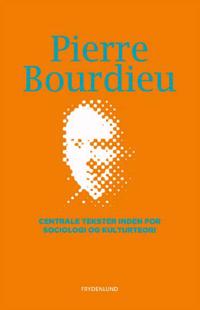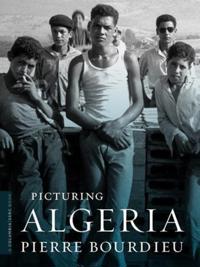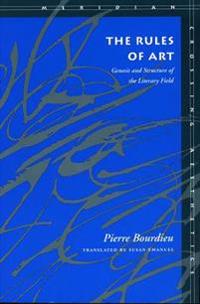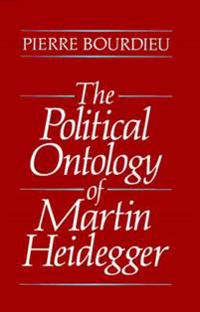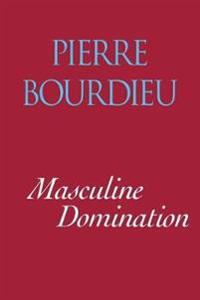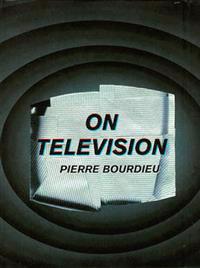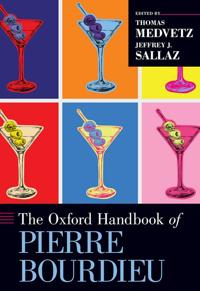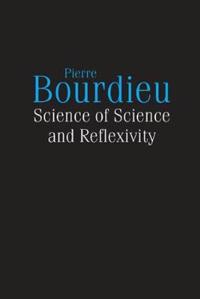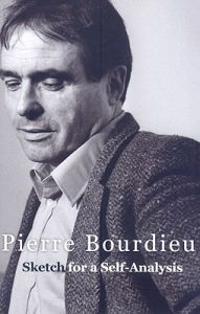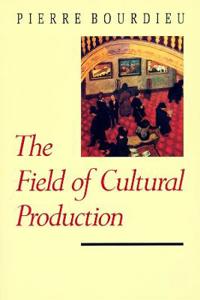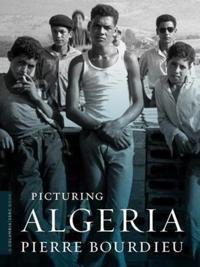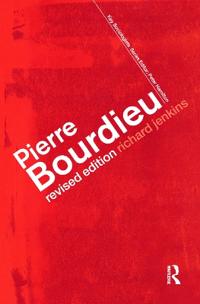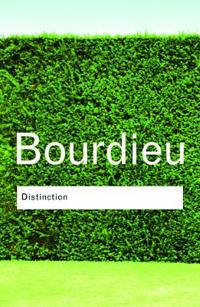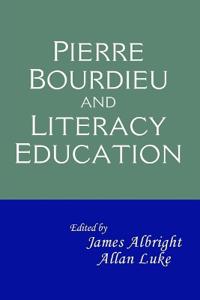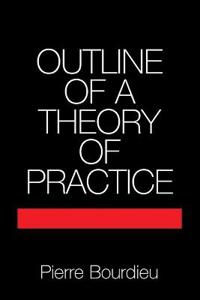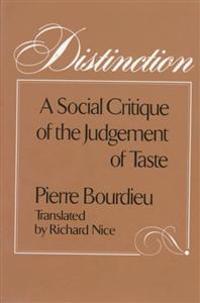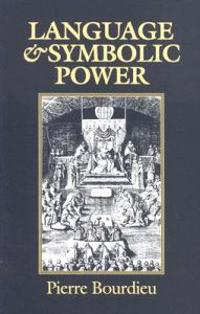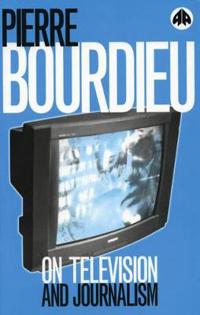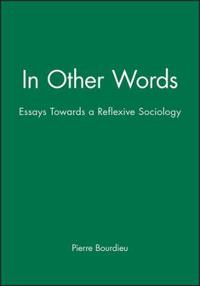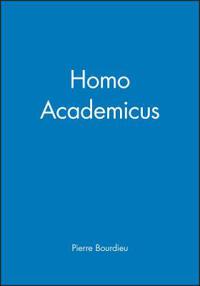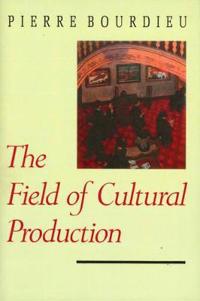Pierre Bourdieu (Häftad)
avPierre Bourdieu
ISBN: 9788778876348 - UTGIVEN: 2008Tekster af en af vor tids vigtigste, mest komplekse og interessante sociologer. Her er et udvalg af hans væsentligste tekster med opdateret forord, indledning og litteraturhenvisninger. Henvender sig til studerende og undervisere inden for sociologi, antropologi, pædagogik, kommunikation, sprog, s[...]
Picturing Algeria (Häftad)
avPierre Bourdieu, Pierre Bourdieu
ISBN: 9780231148436 - UTGIVEN: 2014-08As a soldier in the French army, Pierre Bourdieu took thousands of photographs documenting the abject conditions and suffering (as well as the resourcefulness, determination, grace, and dignity) of the Algerian people as they fought in the Algerian War (1954--1962). Sympathizing with those he was to[...]
Rules of Art (Pocket)
avPierre Bourdieu, Susan (TRN) Emanuel, Pierre Bourdieu
ISBN: 9780804726276 - UTGIVEN: 1996-07The Political Ontology of Martin Heidegger (Pocket)
avPierre Bourdieu, Peter (TRN) Collier, Pierre Bourdieu
ISBN: 9780804726900 - UTGIVEN: 1996-04Martin Heidegger's overt alliance with the Nazis and the specific relation between this alliance and his philosophical thought - the degree to which his concepts are linked to a thoroughly disreputable set of political beliefs - have been the topic of a storm of recent debate. Written ten years befo[...]
Masculine Domination (Pocket)
avPierre Bourdieu, Richard Nice, Pierre Bourdieu
ISBN: 9780804738200 - UTGIVEN: 200105"Masculine domination is so deeply ingrained in our unconscious that we hardly perceive all of its dimensions. It is so much in line with our expectations that we struggle to call it fully into question. Pierre Bourdieu's ethnographic analysis of gender divisions in Kabyle society, as a living reser[...]
On Television (Pocket)
avPierre Bourdieu, Priscilla Parkhurst Ferguson, Pierre Bourdieu
ISBN: 9781565845121 - UTGIVEN: 199904The Oxford Handbook of Pierre Bourdieu
ISBN: 9780199357192 - UTGIVEN: 2018-05The Oxford Handbook of Pierre Bourdieu examines the legacy of one of the most influential social thinkers of the last half-century. Taken together, these writings offer a comprehensive overview of Bourdieu's biography, his main theoretical ideas, and his ongoing influence on the social sciences.[...]
Science of Science and Reflexivity (Häftad)
avPierre Bourdieu
ISBN: 9780226067384 - UTGIVEN: 200501Over the last four decades, the French sociologist Pierre Bourdieu produced one of the most imaginative and subtle bodies of social theory of the postwar era. When he died in 2002, he was considered to be a thinker on a par with Foucault, Barthes, and Lacan--a public intellectual as influential to h[...]
Sketch for a Self-analysis (Häftad)
avPierre Bourdieu
ISBN: 9780226067513 - UTGIVEN: 200808"Sketch for a Self-Analysis" is the ultimate outcome of Pierre Bourdieu's lifelong preoccupation with reflexivity. Vehemently not an autobiography, this unique book is instead an application of Bourdieu's theories to his own life and intellectual trajectory; along the way it offers compelling and in[...]
The Field of Cultural Production (Häftad)
avPierre Bourdieu
ISBN: 9780231082877 - UTGIVEN: 199403During the last two decades, sociologist Pierre Bourdieu has become a dominant force in cultural activity ranging from taste in music and art to choices in food and lifestyles. The Field of Cultural Production brings together Bourdieu's major essays on art and literature and provides the first intro[...]
Picturing Algeria (Inbunden)
avPierre Bourdieu
ISBN: 9780231148429 - UTGIVEN: 201205As a soldier in the French army, Pierre Bourdieu took thousands of photographs documenting the abject conditions and suffering (as well as the resourcefulness, determination, grace, and dignity) of the Algerian people as they fought in the Algerian War (1954--1962). Sympathizing with those he was to[...]
An Introduction to the Work of Pierre Bourdieu (Häftad)
ISBN: 9780333524763 - UTGIVEN: 1990-11Pierre Bourdieu has been making a contribution to European sociology for the past 25 years. At present, he is Professor of Sociology at the College de France in Paris and author of many books including "Distinction and Homo Academicus" which have been translated from the French to the English. This[...]
Distinction (Häftad)
avPierre Bourdieu
ISBN: 9780415045469 - UTGIVEN: 198612'In this rich and probing guide to the strategies of pretension in contemporary France, Bourdieu describes how class segments separate from each other by their contrasting attitudes towards art and beauty.' - The Observer[...]
Pierre Bourdieu (Häftad)
avRichard Jenkins
ISBN: 9780415285278 - UTGIVEN: 200210This short critical introduction to the sociology of Pierre Bourdieu is set forth clearly. Where Bourdieu's original writings are often densely argued and ambiguous, Richard Jenkins is direct, concise and to the point. He emphasizes Bourdieu's contributions to the theory and methodology while also d[...]
Distinction (Storpocket)
avPierre Bourdieu
ISBN: 9780415567886 - UTGIVEN: 201003No judgement of taste is innocent - we are all snobs. Pierre Bourdieu's Distinction brilliantly illuminates the social pretentions of the middle classes in the modern world, focusing on the tastes and preferences of the French bourgeoisie. First published in 1979, the book is at once a vast ethnogra[...]
Pierre Bourdieu and Physical Culture (Inbunden)
avLisa (EDT) Hunter, Wayne (EDT) Smith, Elke (EDT) Emerald
ISBN: 9780415829694 - UTGIVEN: 2014-12The work of French sociologist, anthropologist and philosopher Pierre Bourdieu has been influential across a set of cognate disciplines that can be classified as physical culture studies. Concepts such as field, capital, habitus and symbolic violence have been used as theoretical tools by scholars a[...]
Pierre Bourdieu and Literacy Education (Storpocket)
ISBN: 9780415995894 - UTGIVEN: 2008-08In this volume scholars from around the world focus on how a Bourdieusian stance can enable a powerful socicultural and cultural analysis of literacy education theory and practice and serve as an effective tool in analyzing relations of hierarchy and domination. Although there has been a growing bod[...]
Outline of a Theory of Practice (Pocket)
avPierre Bourdieu
ISBN: 9780521291644 - UTGIVEN: 197706Outline of a theory of practice is recognized as a major theoretical text on the foundations of anthropology and sociology. Pierre Bourdieu, a distinguished French anthropologist, develops a theory of practice which is simultaneously a critique of the methods and postures of social science and a gen[...]
Distinction: A Social Critique of the Judgement of Taste (Häftad)
avPierre Bourdieu
ISBN: 9780674212770 - UTGIVEN: 198710No judgement of taste is innocent. In a word, we are all snobs. Pierre Bourdieu brilliantly illuminates this situation of the middle class in the modern world. France's leading sociologist focusses here on the French bourgeoisie, its tastes and preferences. Distinction is at once a vast ethnography [...]
Language and Symbolic Power (Häftad)
avPierre Bourdieu, John Thompson
ISBN: 9780674510418 - UTGIVEN: 1993-03This volume brings together Bourdieu's highly original writings on language and on the relations among language, power, and politics. Bourdieu develops a forceful critique of traditional approaches to language, including the linguistic theories of Saussure and Chomsky and the theory of speech-acts e[...]
On Television and Journalism (Häftad)
avPierre Bourdieu
ISBN: 9780745313337 - UTGIVEN: 1998-04'A refreshing attack on the neuroses of news gathering ...these anxieties have never been expressed more intelligently and forcefully than in Bourdieu's book. It should be on the reading list not just of every journalist, but of everybody on the receiving end of the media.' The Guardian 'I recomm[...]
In Other Words (Häftad)
avPierre Bourdieu
ISBN: 9780745606590 - UTGIVEN: 1990-07Pierre Bourdieu has established himself as one of the leading social thinkers in the world today and his work is increasingly influential throughout the social sciences and humanities. This volume of interviews, lectures and informal talks provides an excellent introduction to his work and highlight[...]
Homo academicus (Pocket)
avPierre Bourdieu
ISBN: 9780745608310 - UTGIVEN: 199009A sociological analysis of modern intellectual culture, aiming to show that the academy is not just a realm of dialogue and debate, but also a sphere of power in which reputations and careers are made, defended and destroyed. Key figures such as Foucault, Levi-Strauss and Derrida are discussed.[...]
Field of cultural production - essays on art and literature (Pocket)
avPierre Bourdieu
ISBN: 9780745609874 - UTGIVEN: 199301Bourdieu considers the study of literary and artistic works, addressing issues that have preoccupied criticism in the late 20th century: aesthetic value and judgement; the social contexts of cultural practice; the role of intellectuals and artists; and structures of literary and artistic authority.[...]

